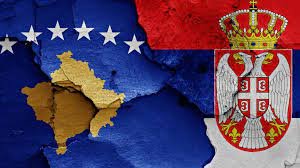The Special Envoy of the European Union, Miroslav Lajcak, recently urged Serbia and Kosovo to resume talks on normalizing relations in order to prevent a recurrence of the violence that occurred in northern Kosovo last month.
This comes after four people were killed last month, when almost 30 ethnic Serbian gunmen in armored vehicles assaulted a town in north Kosovo, fighting police and locking themselves in a monastery. This was part of a resurgence of violence in the unrest-plagued north. In the Serb-majority territory, the siege focused on a Serbian Orthodox monastery close to the settlement of Banjska, where monks and pilgrims sought refuge inside a temple while gunfire erupted. It was amongst the bloodiest incidents to have occurred in the nation since the Kosovo War’s conclusion in 1999.
According to Serbian President Aleksander Vucic, the activity amounted to a rebellion against Albin Kurti, the prime minister of Kosovo, who has declined to establish a coalition of Serb towns in the northern part of the country. “Serbia will never recognize independent Kosovo, you can kill us all,” he said.
The discovery of numerous heavy weapons, explosives, and uniforms “that were enough for hundreds of other attackers” by police, according to Kosovo’s Interior Minister Xhelal Svecla, suggests that plans for a significant attack have been made. In response to requests from the US and the EU to reduce tensions, Kosovo Serbs who have been obstructing roadways in the northern part of the country for 19 days have decided to begin taking down barriers on Thursday morning.
The Blame Game
Following the incident, Pristina and Belgrade exchanged accusations. Aleksandar Vucic, the president of Serbia, claimed that the “terror” of the Kosovo administration had incited a “uprising” among the Serb minority in the nation’s north. Albin Kurti, the Prime Minister of Kosovo, charged that Serbia was financially and logistically aiding “organized crime” gangs that were invading his nation; Serbia refuted this accusation.
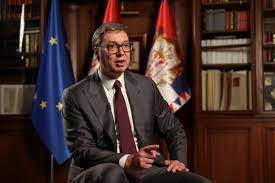
The West, which supported Kosovo’s independence, and Russia, which backs Serbia in its attempts to prevent the new found county from joining international organizations like the UN, have been at odds over the region for more than 20 years.
Public dissatisfaction with the Serbian president and the cabinet, which is led by his Serbian Progressive Party, has grown. Antigovernment protests have place every week in Serbia after two horrific shootings.
The country’s massive security force, which was powerless to stop two mass shooting in the center of Serbia’s city. It has been the target of public ire, as has Vucic’s devoted media, which has encouraged the culture of deliberate violence.
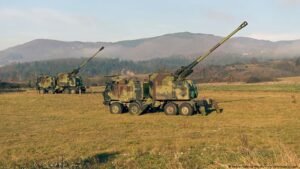
The International Concerns
The EU and US, who are mediating negotiations between Pristina and Belgrade to settle unresolved bilateral issues, have promised not to prosecute any of the Serbs who erected barricades. It’s anticipated that taking down the barricades will ease continuing tensions between Pristina and Belgrade.
Along with Gabriel Escobar, the US Special Envoy for the Western Balkans, and delegates from France, Germany, and Italy, Lajcak made a tour of the area. Though future flare-ups are always likely, a conflict in the Western Balkans is prevented from escalating.
Josep Borrell, the head of EU foreign policy, and Caroline Ziadeh, the head of the U.N. mission in Kosovo, denounced the violence, in order to prevent a recurrence of the violence that occurred in northern Kosovo last month.
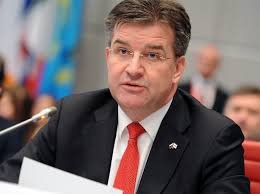
“A thorough investigation is necessary into the Banjska attacks, as they have brought about numerous changes. However, after meeting with Prime Minister Albin Kurti, Miroslav Lajcak stated that “the dialogue must go on.”
“If there is not dialogue there might be a repetition of escalation”, he stated.
According to John Kirby, a spokesman for the White House, Serbia is amassing an unparalleled quantity of troops along the frontier. The possibility of a military confrontation between Kosovo and the West may have seemed plausible given the 4,500 NATO soldiers stationed there as part of the KFOR peacekeeping operation.
While the US, most EU members, Japan, Australia, and India, do recognize Kosovo as an independent nation, China, Russia, and India do not.
Kosovo has gained recognition as an independent nation by 99 of the 193 member states of the United Nations (UN).
The Beginning of Conflict
Almost ten years after a guerrilla insurrection against Belgrade’s oppressive authority, Kosovo declared its independence from Serbia in 2008. Though it denies insinuating its fomenting strife and instability within its neighbors’ borders, Serbia nevertheless views Kosovo as an essential component of its territory.
NATO intervened to protect ethnic Albanians during the 1998–1999 war, and afterward, Kosovo, which has an Albanian majority, declared independence with Western support.
The independent country is declined of recognition by the 50,000 orthodox Serbs, also declining the government in Pristina. The ethnic Serbs make upto 6% of the 1.8 million Kosovo people while the regional Albanians make upto 92%. The Bosniaks, Gorans, Turks and Roma make up the rest.
The majority of Albanians are Muslims, while the majority of Serbs are Eastern Orthodox Christians. Other minority groups consist of Turks and Bosnians.
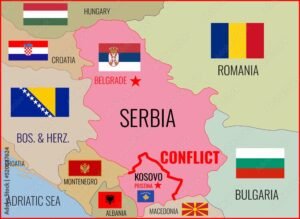
The Battle of Kosovo, fought in 1389 between the Ottoman Sultan Murad Hudavendigar and the Serbian prince Lazar Hrebeljanovic, is considered by Serbian nationalists to represent a turning point in their country’s history.
The majority ethnic Albanian population in Kosovo, however claim that Serbia is occupying and repressing their territory and sees it as their own.
The Serbs are frequently found attacking the police and refusing to reimburse Kosovo’s power company for the electricity they consume. Belgrade, Capital of Serbia has accused Pristina, Kosovo’s capital of squashing the minority rights.
Recent clashes in Kosovo
Serbs set up several roadblocks and engaged in gunfire with police following the arrest of a former Serb policeman for allegedly attacking active police officers during a prior protest, new ethnic tensions have surfaced. The Serb minority staged violent protests in response to the arrest.
In an effort to defuse tensions between Kosovo and Serbia, he was taken out of detention and placed under house arrest, according to a court spokesperson.
After months of conflict over the subject of car license plates, there is currently a standoff. The government has long sought to exert its authority over the 50,000 or so Serbs living in the north by having them change their Serbian license plates to ones issued by Pristina. 600 police officers, local judges, and ethnic Serb mayors in northern communities resigned in protest at the impending transition.
The goal of the majority-Serb towns is to form an association that would have more autonomy. Since pledging to participate in the EU-sponsored dialogue in 2013, both the countries have not made much headway on these and other concerns.
In eastern Europe, Serbia is a landlocked nation bordered by Bulgaria, Romania, and Hungary. A small landlocked region, Kosovo borders North Macedonia, Albania, and Montenegro to the southwest of Serbia. Kosovo is seen by many Serbs as the homeland of their people.
